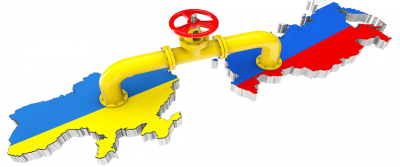Ukraine Has Asked Russia to Fill Its Budget Holes

The ambitious Nord Stream 2 pipeline project aims to deliver Russian gas to Europe via the Baltic Sea, thus bypassing Ukraine and reducing risk from Russia’s perspective. While Ukraine has consistently said it will prevent the completion of the Nord Stream 2 pipeline, the country is now also offering Russian state-owned Gazprom its gas storage facilities.
However, there are two major reasons why Moscow might not agree to Ukraine’s offer:
Moscow has difficulty in having confidence in Ukraine considering it maintains a pro-NATO policy.
Russia has enough of its own warehouses to store gas.
Although the proposal for storing Russian gas in Ukraine first appears logical, given the huge lack of trust in bilateral relations, this is a rather ambitious proposal by Kiev as it also continues to do everything in its power to prevent the construction of Nord Stream 2.
The Director General of the Ukrainian gas transportation system Sergei Makogon suggested that Gazprom lease Ukrainian underground gas storage facilities for the temporary storage of Russian gas transported to Europe. He said it would be three to five times cheaper for Gazprom than it costs in European Union countries who consume this gas – just $10 per thousand cubic meters. He added that in winter, as demand grows in the European Union, Gazprom will be able to take gas from underground Ukrainian gas storage facilities and send it to Europe.
He also predicts that Ukraine may end its role as a Russian gas transit in 2025 after the five-year contract between Russia’s Gazprom and Ukraine’s Naftogas expires, along with the completion of the Nord Stream 2 gas pipeline. This would be another major economic blow to Ukraine when considering after the first leg of the Turkish Stream was put into operation, the Ukrainian system had already lost 15 billion cubic meters of annual transit. The loss Ukraine faces because of the Turkish Stream will become even greater with the second phase of the pipeline that will run through Bulgaria, Serbia and Hungary, and account for another 15 billion cubic meter loss, is complete..
Although Makogon said he hopes Ukraine can store gas on behalf of Russia, he also announced that Ukraine “will make every effort to prevent the completion of Nord Stream 2, as this project has a clear political character and runs counter to European principles of solidarity.” So effectively he made two contradictory statements as one is friendly and the other is aggressive, thus again demonstrating why Russia finds it difficult in trusting Ukraine.
Russian officials point out that there is sufficient gas storage in Russia’s territory and that Russia does not currently need the assistance of other countries in this regard. Even if there is a need to rent a warehouse, in the case of Ukraine, a competitive price will not be sufficient as guarantees for safeguarding Russian gas will be needed so theft that has happened in the past will not be repeated.
It also needs to be factored in that because of the coronavirus, there is a decline in gas consumption. The need for gas storage will increase in winter – this is seemingly obvious. However, we are now only weeks away from summer and the demand for gas will significantly reduce, in addition to the fact that Gazprom has sufficient capacity for its own storage. Therefore, Makogon’s proposal for Ukraine to store Russian gas is actually a more of a desperate plea linked to the fact that Ukraine is experiencing a significant economic downturn, and the head of the Ukrainian gas transportation system is looking for an opportunity to somehow fill the deep budget holes.
It should also be considered that the infrastructure Ukraine is offering to Russia is generally 50 years old. Because of all this, it is highly unlikely that there will be agreements for the storage of Russian gas made between Moscow and Kiev.
Remembering that after tough negotiations last December, Kiev and Moscow signed a five-year agreement on the transit of Russian gas to Europe via Ukraine. The new contract stipulates that Gazprom will send at least 65 billion cubic meters of gas through Ukraine in the first year and then at least 40 billion annually from 2021 to 2024. This five-year agreement will bring Kiev more than $7 billion, which is critical for its short-term economic survival, but what then after that?
*
Note to readers: please click the share buttons above or below. Forward this article to your email lists. Crosspost on your blog site, internet forums. etc.
This article was originally published on InfoBrics.
Paul Antonopoulos is an independent geopolitical analyst.
Featured image is from InfoBrics

